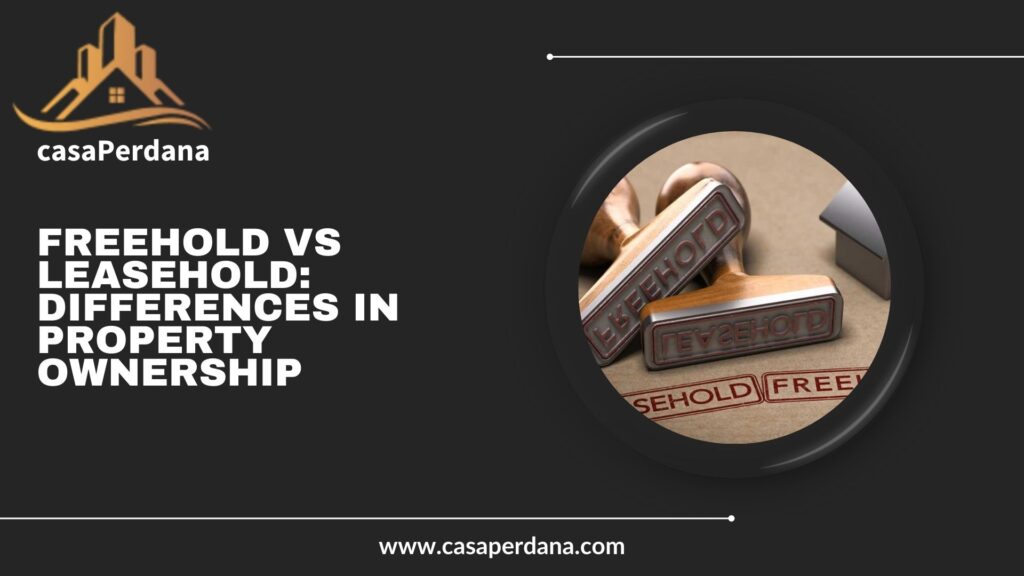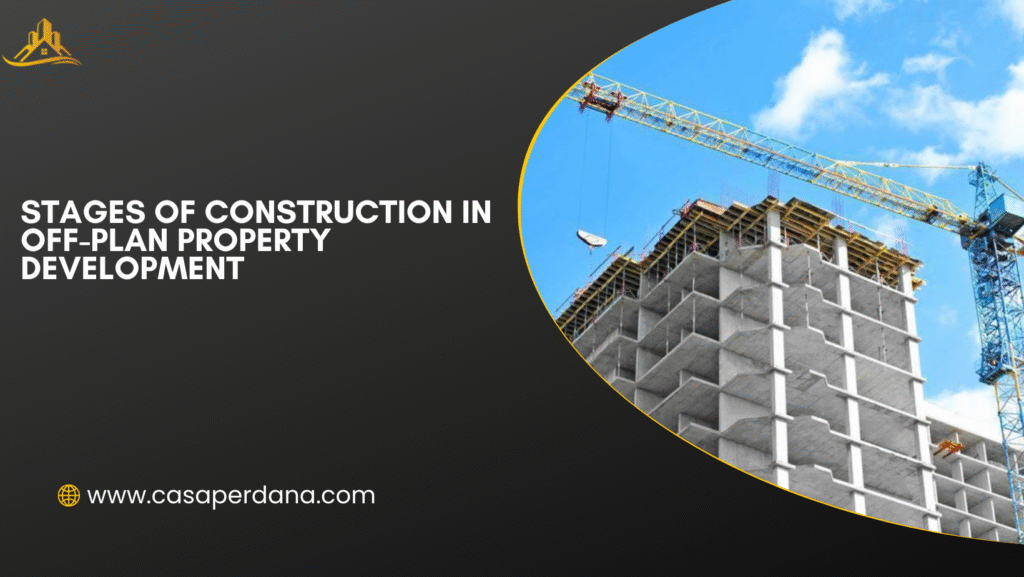Do you want to know the key difference between freehold and leasehold? Here, we will enlighten you and the key differences between freehold and leasehold.
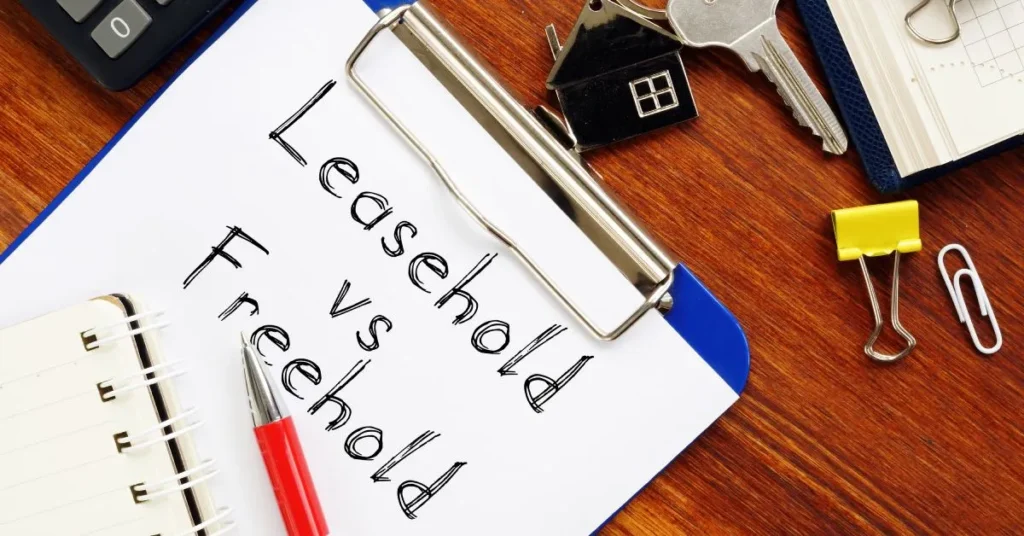
When purchasing property, understanding the difference between freehold and leasehold is essential. These two terms define the legal ownership of a property and determine what rights you have as a buyer.
Whether you’re investing in a family home or a city apartment, knowing how these property types differ can save you from future complications.
From ownership rights to maintenance costs and resale value, the choice between freehold and leasehold can significantly affect your long-term satisfaction and financial planning. This guide breaks down both terms to help you make an informed decision.
What Is a Freehold Property?
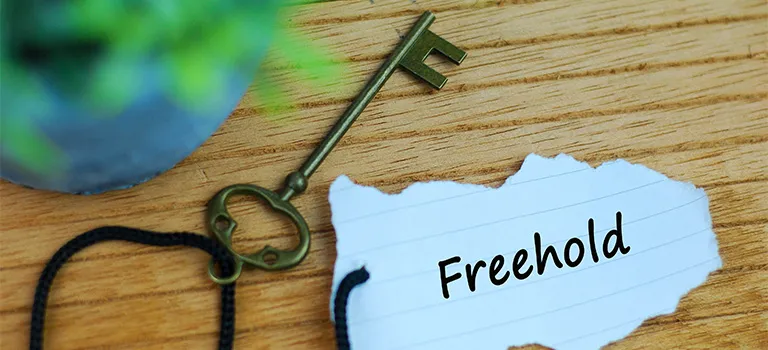
A freehold property means you own the building and the land it stands on. There’s no time limit on your ownership. It gives you full control.
You can renovate, sell, or rent it without needing approval. No annual ground rent or service charges apply unless in a shared development. It’s considered more valuable.
Freehold ownership is common with standalone homes. It’s ideal for those seeking complete control and long-term investment. Buyers prefer it for its security and flexibility.
Pros of Freehold Property
- Complete ownership and freedom.
- No landlord or lease limitations.
- Better resale potential.
- No ground rent or annual fees.
- Long-term investment security.
Cons of Freehold Property
- Usually more expensive.
- Responsible for full maintenance.
- Higher upfront costs.
- Less common in urban flats or apartments.
What Is a Leasehold Property?
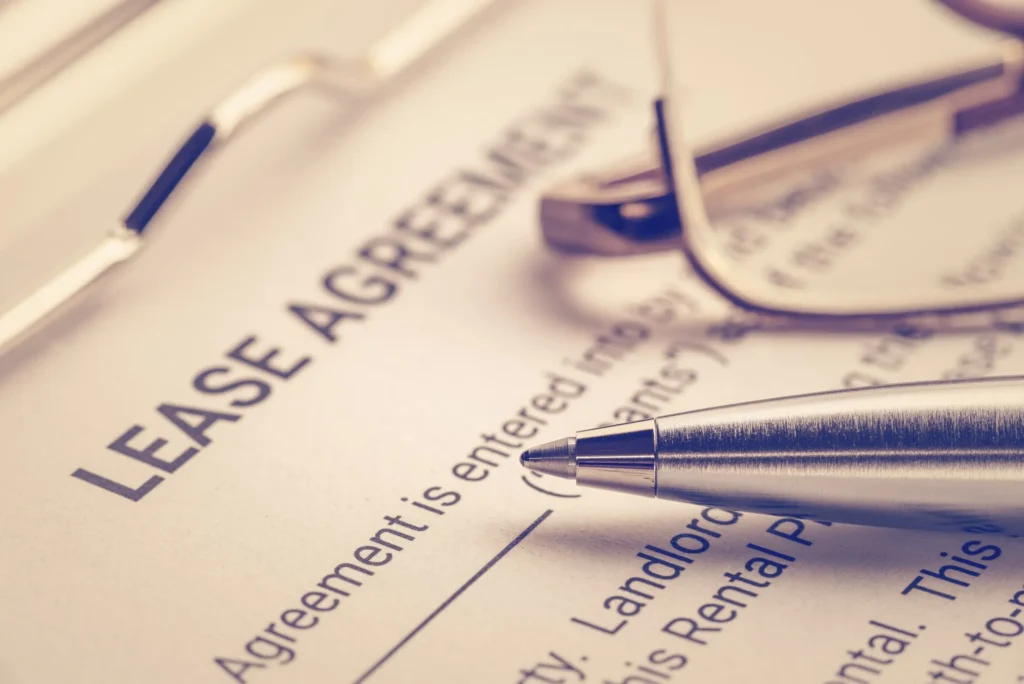
Leasehold means you own the property for a fixed term but not the land. The land remains under the freeholder’s name. Common lease lengths are 99 to 999 years.
You may pay ground rent, maintenance fees, and service charges. Extensions may be costly. Once the lease ends, ownership returns to the freeholder unless renewed.
This type is common with apartments and flats. Restrictions may apply, including no pet rules or renovation limits. It’s vital to check lease terms before purchase.
Pros of Leasehold Property
- Lower purchase price
- Ideal for city apartments
- Often include shared amenities
- Some maintenance handled by management
Cons of Leasehold Property
- Lease expiry can lower value
- Ground rent and service charges apply
- Permission needed for changes
- Selling can be harder with short leases
Key Differences Between Freehold and Leasehold

One major difference lies in ownership. With freehold, you own both the land and the building permanently. Leasehold, on the other hand, means you only own the building for a set number of years while the land remains with the freeholder.
Time frame is another critical factor. Freehold ownership has no expiration. Leasehold properties come with a lease that could range from several decades to centuries. When the lease ends, the property reverts to the freeholder unless it’s renewed.
Control over the property also varies significantly. Freeholders enjoy full autonomy, allowing them to modify, rent, or sell without external approval. Leaseholders must often obtain permission from the freeholder for significant changes or additions.
Fees and costs further differentiate the two. Freehold properties generally come without recurring charges like ground rent. In contrast, leasehold properties usually involve ongoing payments for maintenance, service charges, and ground rent.
Maintenance responsibilities differ as well. Freeholders are fully responsible for the upkeep of their property. Leaseholders often share maintenance duties through a managing agent or service company, especially in multi-unit buildings.
Lastly, there’s a clear impact on resale value. Freehold properties tend to hold value better and sell faster due to the ownership advantages. Leasehold properties, especially those with shorter leases, may be harder to sell and may depreciate faster.
Frequently Asked Questions

Can You Convert Leasehold to Freehold?
Yes, in some regions, you can. It’s called leasehold enfranchisement. You can either extend the lease or buy the freehold.
This process involves legal steps and fees. It may require agreement from the current freeholder. Always seek legal advice before proceeding.
Which Should You Choose?
Choose freehold if you want control, freedom, and long-term value. It suits family homes and buyers seeking stability.
Go for leasehold if you prefer city living, shared amenities, or a lower entry cost. Just review lease terms carefully and know your rights.
What is the Main Difference Between Freehold and Leasehold?
The main difference between freehold and leasehold is ownership. With freehold, you own both the property and the land it stands on. Leasehold means you own the property for a set period but not the land.
Is It Better to Buy a Freehold or Leasehold?
Buying freehold is generally better if you want full control and long-term value. However, a leasehold may be more affordable and suitable for city living. The choice depends on your budget and goals.
Do You Pay Ground Rent on a Freehold Property?
No, freehold property owners do not pay ground rent. Leasehold owners, however, must pay ground rent to the freeholder as part of their lease agreement.
Can I Convert My Leasehold to Freehold?
Yes, in many cases, you can convert leasehold to freehold. This process is called leasehold enfranchisement. It usually involves legal steps and payment to the freeholder.
Related Post:

